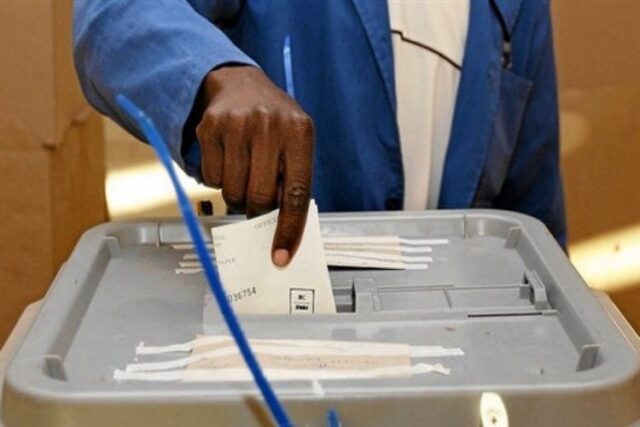Somalia is among an African Least developed countries (LDCs) and a fragile state. Due to several civil wars, floods and outbreaks, Somalian economy is considered to be one of the poorest and least developed in the World. As a fact, it is tremendously weak.
However, in the absence of a strong central government authority and poor government support and administration are the key problems that have been devastating to Somalia’s economy. Somalia main imports are food, fuel, construction materials, manufactured goods and khat among others. All these needs a stable customs authority which the country lacks such public services. Somalia’s economy will suffer more as a result of the Ukrainian crisis that accompanied the country’s worst draught crisis in a decade leaves millions hungry with live at risk.
Ukrainian is at war with Russian federation, we know it and we are sitting thousands miles away from the Kyiv, watching the news on TV and mobile phones at home, thinking thank God it is not happening to us, while I will bear a bad news this war is bleeding all of us. Do you have a car at home, truck or any other motor car? Taking that car out it becomes more expensive. The Ukraine conflict is having serious consequences not only for Russia and Ukraine, but it also potentially threatens to damage the still frail economic recovery in African continent at large.
Russians is the third largest oil exporter and producer in the world market e.g. in a normal day Russia exports nearly 5MN barrels of oil but now the Kremlin is at war what happens those shipment. Definitely it had already effected in every household budget in the world. The crude oil is hovering around 100 dollars per barrel, the day Russian invaded Ukraine in what Moscow called a special operation. The crude oil touches 105 dollar per barrel that is a highest jumping eight years (8 years). You and I do not buy Brent crude oil so why should we bother about it.
Petrol, diesel and various other fuels are made from crude oil – a yellowish-black fossil fuel that is pumped out of the ground. Many household products including plastics, detergents and clothing are also derived from the non-renewable resource.
So, when oil refineries start paying more for oil, they charge more from distributor, the distributor charges more from petro-pumps or retailers and the next step is the consumers. The consumers end up paying more at the petro-pumps and this is just one part of oil story.
What does a ban on Russian oil mean?
Following Russia’s invasion of Ukraine, a number of other states have imposed sanctions on Russia. The ensuing energy war has caused oil prices to reach unprecedented highs not seen since the 2008 financial crisis.
Inflation has been rising worldwide for a year — due to Covid-linked disruptions in supply chains, leading to a spurt in the prices of raw materials which have raised production costs. The world economy’s fragile recovery from the Covid-induced crisis is now threatened by Russia’s war in Ukraine and soaring commodity prices.
Food
When oil prices chumps then the transport system becomes expensive as well. The impact of the oil price has led to the increase of prices of other commodities in the country. Prices for basic food staples are rising in Somalia, as shoppers stock on essentials and sellers seek profits amid the Ukrainian war. Across the countrywide, people are calling for governments to intervene.
The Russia-Ukraine conflict has the potential to impact food prices though the effects will likely be felt most acutely overseas. Higher food prices are one of the biggest factors that have been driving up inflation to multi-decade highs lately.
The prices of sugar have gone up. Before the Ukrainian war the price of 25kg of sugar was SOS 300.000/= ($12) to 625.000/= ($18). Price increase for cooking oil in 5kg bottles causing anxiety among consumers in Mogadishu from SOS 175.000 ($7) to 325.000/= ($13). Accordingly, the price of wheat flour has also gone up mounted to approximately SOS 275.000/= ($11) to 400.000/= ($16) of 25Kg.
HIGH ENERGY PRICES
Energy commodity prices have reached unprecedented high levels in Somalia. The East African nation of some 15 million populations has electric power that is amongst almost expensive energy in the world. A kilowatt of electricity in the Somali capital can cost as much as $1 an hour (Aljazeera, 2016). The energy suppliers companies which operate in the capital city Mogadishu are owned by private persons. So, the companies hike prices at any time as they wish to.
It was of yesterday 15th March 2022, when the three largest energy suppliers released a press that the price of electricity has been added from 0.3 US dollar to 0.10 US dollars per kilowatt. These companies are Mogadishu power supply, Blue-sky energy and Beco. It was said in the Press conference that the world oil prices have reached record high for the last six months and after Russian invasion to Ukraine it also increased an oil price to a hundred percent.
Unfortunately, the country lacks a regulatory authority to control the electricity industry in Somalia. To approve the rates of charges and terms and conditions of electricity services provided by transmission and distribution companies. To enforce performance standards for the generation and to issue licenses among others.
Author: Ahmed Kheir Osman
Lecturer at Somali National University- Mogadishu
Email: ahmedkheiroc@gmail.com
Opinions expressed in this article are the author’s own and do not necessarily reflect the editorial policy of Puntland Mirror.






